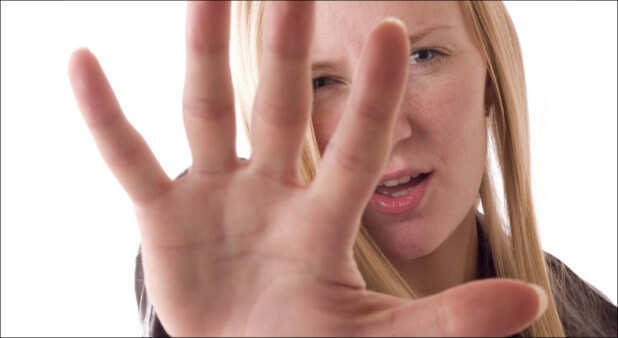My day in court finally arrived. Although I had been stopped for speeding, well, a few times, I had never actually received a ticket. I sort of took pride in the fact that I had gotten out of so many. I turned the fact that I actually got one into a challenge, and I prepared my speech all the way to the courthouse. I arrived with 50 other people probably doing the same thing. Then, the judge gathered us all together and gave his own little speech. It went something like this.
I know you are all gathered here today and have come armed with your best speech of how you are not actually guilty of the crime written out on your little yellow ticket. How did he know? So before we proceed, I would like to make a proposal. If you can stand before me, thinking about all the times you were guilty of speeding and DIDN’T get caught, and tell me with all certainty that you are unequivocally “not guilty,” then step up here before me. This I have to see. For it is my belief that you are all guilty, and that this time is the only time you actually got caught.
I remember you could have heard a pin drop. It was followed by an awkward chuckle then a burst of laughter. Yes, we were guilty, and we were caught, in more ways than one. Fifty people stepped up and wholeheartedly paid their tickets that day. It was something I never forgot.
I paid the ticket because I was guilty. However, I was never ashamed. Guilt is not the same as shame. Guilt is a verdict. It is directed toward an action or the behavior of a person. It is a ruling so to speak on whether you did something wrong or not. Often times guilt requires an apology or restitution. Pay the fine. Say, “I’m sorry.” Guilt is “I did something wrong and now I must make it right.”
Shame is a directed at a person and tends to be more relational. Shame says, “I am wrong.” “This cannot be fixed.” “I am a bad person.” “If you knew (fill in the blank) about me, you would not want to be my friend.”
Guilt, though initially negative, can actually bring a positive change and be useful. Shame never does. It is never positive. It is never useful. Shame brings disconnection. Shame seeks cover. Shame brings condemnation and separation. We can feel guilty for what we do. Shames makes us feel bad for who we are.
In the case of the speeding ticket, I simply paid the price. It wasn’t personal. I was much more cautious in my future driving and frankly, never tried to get out of a ticket again.
I learned a priceless lesson, except of course, for the cost of the ticket. I wasn’t ashamed, though. If I ever see that judge again, I would tell him that I thought what he did was brilliant. He cleared his docket in one fell swoop and 50 people paid their $100+ fines.
We were guilty, at least at one point in our driving careers. I did not feel the need to run and hide, however. Having paid the debt, I was essentially, free of any bad feelings. It still makes me laugh to this day.
So what do we do if we find ourselves between guilt and shame? Know the difference. If we are guilty, own it. Make things right. Is there an apology that you need to make? Is there something you need to do? Is there something you need to say? Is there is anything within your power that can make up for something you have done or said? If yes, then try.
“If we confess our sins, He is faithful and just to forgive our sins” (1 John 1:9). He cleans us from everything wrong. It is a beautiful part of the provision of God who knows our flaws and frailties. Oftentimes, it is that sheer act of humility that draws people to us. Many times, relationships are even stronger than they were before.
If it is shame, then recognize it. Own it, too. Find a person with a sincere empathetic ear, even perhaps a professional who can listen without judgment. Shame needs secrecy to grow and thrive. It likes the dark. Put some “light” on it. Shame is birthed from a variety of places including trauma, abuse, and family or religious upbringing. Once we turn the light on shame, look at it, and stop being afraid, we are more able to move forward in a positive and healthy way.
Casey Lohman has been active in ministry for over 20 years. She has helped build a school, prayer ministry and healing house. She is a speaker and aspiring writer.














































